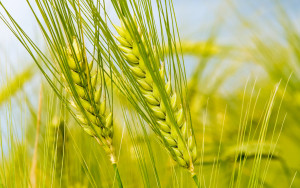 Food security is an essentially contested concept, recently receiving renewed attention in news articles, TV programmes, radio broadcasts and parliamentary debates. At universities, entire courses are dedicated to food security and the term itself has been defined in over two-hundred ways (Maxwell 1996). However, it is often invoked in a context of problematic debates over population growth and environmental pressure on productive resources. When demographers projected the world population to grow to 9 billion by 2050, the long-standing fears regarding resources scarcity – first expressed by Thomas Malthus in 1798 – re-emerged.
Food security is an essentially contested concept, recently receiving renewed attention in news articles, TV programmes, radio broadcasts and parliamentary debates. At universities, entire courses are dedicated to food security and the term itself has been defined in over two-hundred ways (Maxwell 1996). However, it is often invoked in a context of problematic debates over population growth and environmental pressure on productive resources. When demographers projected the world population to grow to 9 billion by 2050, the long-standing fears regarding resources scarcity – first expressed by Thomas Malthus in 1798 – re-emerged.
Concerns around the availability of food have been responded to in a variety of ways. A prominent response in the 1980s involved a concerted international effort, primarily driven by the governments and private sectors of the global north, to invest in agriculture and seed technology so as to increase food production world-wide. However, the “Green Revolution”, as this effort was labelled, proved a controversial project as authors like Vandana Shiva, Eric Holt-Giménez and many others with them have made clear. While productivity gains were achieved through research and technology transfers, social reforms regarding the distribution of agricultural land lagged behind. The Green Revolution empowered landed elites but marginalised smallholders and landless workers (Carolan 2013). As such, the episode did not address the fundamental inequalities present in food production systems which are often responsible for the production of food insecurity in the first place.
The lesson presented by the Green Revolution is that technocratic approaches to food security that embrace science as a solution to world hunger but do not consider broader political economic contexts are inherently limited. Moreover, many contemporary scientists assert that sufficient resources are available to feed the world’s population but that people are hungry because the commodification of food has effected a highly uneven distribution of people’s vital needs. Critics therefore argue for the recognition of food as a “commons” (Vivero Pol 2013). In response to the top-down definition of food security by organisations like the Food and Agricultural Organisation (FAO), social movements and academic-activists have responded by embracing the concept of food sovereignty, which, although conceptually not in complete opposition to the notion of food security, is seen as a counter-concept that upholds the intrinsic value of food and ultimately calls for the democratisation of the food system. For more on food sovereignty and the work of intellectuals from the global South in particular, see the sister-component to this entry.
Essential reading
Carolan, M. S. (2013). Reclaiming food security. London: Routledge.
Holt-Giménez, Eric (2008), ‘Out of AGRA: The green revolution returns to Africa‘, Development, 51 (4), 464-71.
Lang, T. and M. Heasman (2004). Food wars: the global battle for mouths, minds and markets. London: Earthscan.
Rosin, C., P. Stock, et al. (2013). Food systems failure: The global food crisis and the future of agriculture. London: Routledge
Shiva, Vandana (2000). Stolen harvest: The hijacking of the global food supply. Cambridge: South End Press.
Further reading
Cleaver, H. (1977). “Food, Famine and the International Crisis” Zerowork, 2 (Fall).
Edkins, J. (2000). Whose hunger? Concepts of famine, practices of aid. Minneapolis: University of Minnesota Press.
Essex, J. (2012). “Idle hands are the devil’s tools: the geopolitics and geoeconomics of hunger.” Annals of the Association of American Geographers 102(1), 191-207.
Patel, R. (2013). Stuffed And Starved: From Farm to Fork, the Hidden Battle For The World Food System. London: Portobello Books.
Shiva, Vandana (2016). The violence of the green revolution: Third world agriculture, ecology, and politics. Lexington: The University of Kentucky Press
Vivero Pol, J. L. (2013). “Food as a commons: Reframing the narrative of the food system.” In Social Science Research Network.
Questions
What is the meaning of food security?
Why is food insecurity such a long-standing problem?
How does the notion of food sovereignty challenge and politicise ideas of food security?
How might the transformation of the global food system be envisioned? And which political thinkers could help us imagine it?
Submitted by Justa Hopma
As a recent recipient of the graduate school certificate in African studies at ASU, my final drew from or focused in part on the settler narrative movement of the antebellum era. Despite the discovery of over 100 burials from this era that came to light recently, it was all treated in a quite troubing manner. Settler Colonial mentality was pervasive. It is clear, the slave labor narrative must be preserved at all cost. Local professional organizations and offices were disrespected and ignored as if the descended community did not exist. People wear the continuance of mixed relationships from this history and it is only now that they are finding their voice and their heritage in some cases. Global social theory is spot on.
I’m interested in colonialism,settler colonialism and decolonisation as it speaks to the original ownership of the land/country[?].
I was interested to read ‘the tendency among some scholars of settler colonialism to treat settlement as inevitable, simultaneously relieving settler societies and states of the burden of reconciling with indigenous peoples, and placing the burden of accommodating settler sovereignty onto those same indigenous peoples'[above]
I have been tentatively searching for references to the morality/legality of colonialisation,which could possibly have huge ramifications,and they are scarce.
Interesting. Could you please add Maria Lugones’s work in the further reading section please? She not only engaged with Quijano’s concept but revised it significantly to demonstrate the coloniality of gender. Thank you.